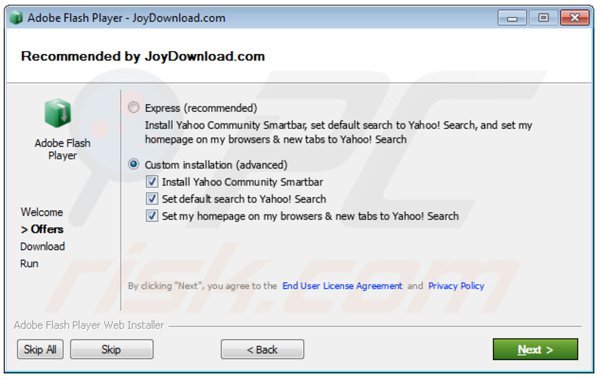

- #Muvic smartbar should i remove it how to
- #Muvic smartbar should i remove it install
- #Muvic smartbar should i remove it update
- #Muvic smartbar should i remove it driver
- #Muvic smartbar should i remove it full
What I didn't realize at the time was that Superfetch restarts itself automatically shortly after I turn it off and disable it. It's true that I did include "disabling superfetch" from services.msc in the "tried solutions" list above. I think it has been Superfetch the whole time. I think I figured out the source of the problem - it's Superfetch.
#Muvic smartbar should i remove it how to
I guess disabling pagefile entirely took a toll on my RAM? I don't really know how to interpret this. This morning, the computer rebooted again. When I woke up on 6/1 and pressed the power button, it first seemed like it was resuming from sleep but then rebooted the computer. I used my laptop (unplugged on battery) on the night of 5/30 and then put it to sleep mode over night. So, between 5/27 and 5/30 I had to restart my computer for reasons related to various updates for third-party applications.
#Muvic smartbar should i remove it update
Update (Disabling page file force-restarts the computer) Will update again in a couple days, or if the problem occurs again, whichever comes sooner. The number for "currently allocated" is now 0MB.

I have now disabled pagefile entirely via the same window shown above in the screenshot. When I opened Resource Monitor the C:\System (pagefile.sys) again was shown to be the culprit. I had to reboot the computer about 30 minutes ago because the disk usage again hit 100%.

I was about to give up but then noticed that one of the main culprits of the disk usage spike, as shown in the "Disk Activity" section of the Resource Monitor, was C:\System (pagefile.sys).
#Muvic smartbar should i remove it full
#Muvic smartbar should i remove it driver
#Muvic smartbar should i remove it install
I've used my current laptop (as well as my previous laptops) this way - putting it on sleep mode at night and restarting it only when Windows needs to install updates - for a long time. The only way to make the disk usage decrease is to restart the computer. When this happens, everything from opening/closing applications to typing and even bringing up the start screen by pressing the Windows key becomes extremely slow. After being on continually (except for at night, when I put it on sleep mode) for about 48 hours, the disk usage as seen by Task Manager hits 100%. The issue appeared at the beginning of April this year, when I updated the OS from Windows 8.1 to Windows 8.1 Update 1 (not from 8 to 8.1).

I've had the computer for about 1.5 years with no major problems. Core i5 CPU, 750GB HDD, 8GB RAM, Intel HD Graphics 4000. (If an entry is included in the fixlist, it will be removed.)ĪV: Microsoft Security Essentials (Enabled - Up to date) ) (Version: 01.I have a 14-inch Samsung Series 5 Ultra. I am running Windows 7 Professional.Īdditional scan result of Farbar Recovery Scan Tool (圆4) Version: 25-08-2014 Adwcleaner Spybot and JRT along with the secondary scanner from previous steps. I have tried following the other threads but it is still there. Muvic Smart Bar is still in my Programs and Features and will not uninstall.


 0 kommentar(er)
0 kommentar(er)
